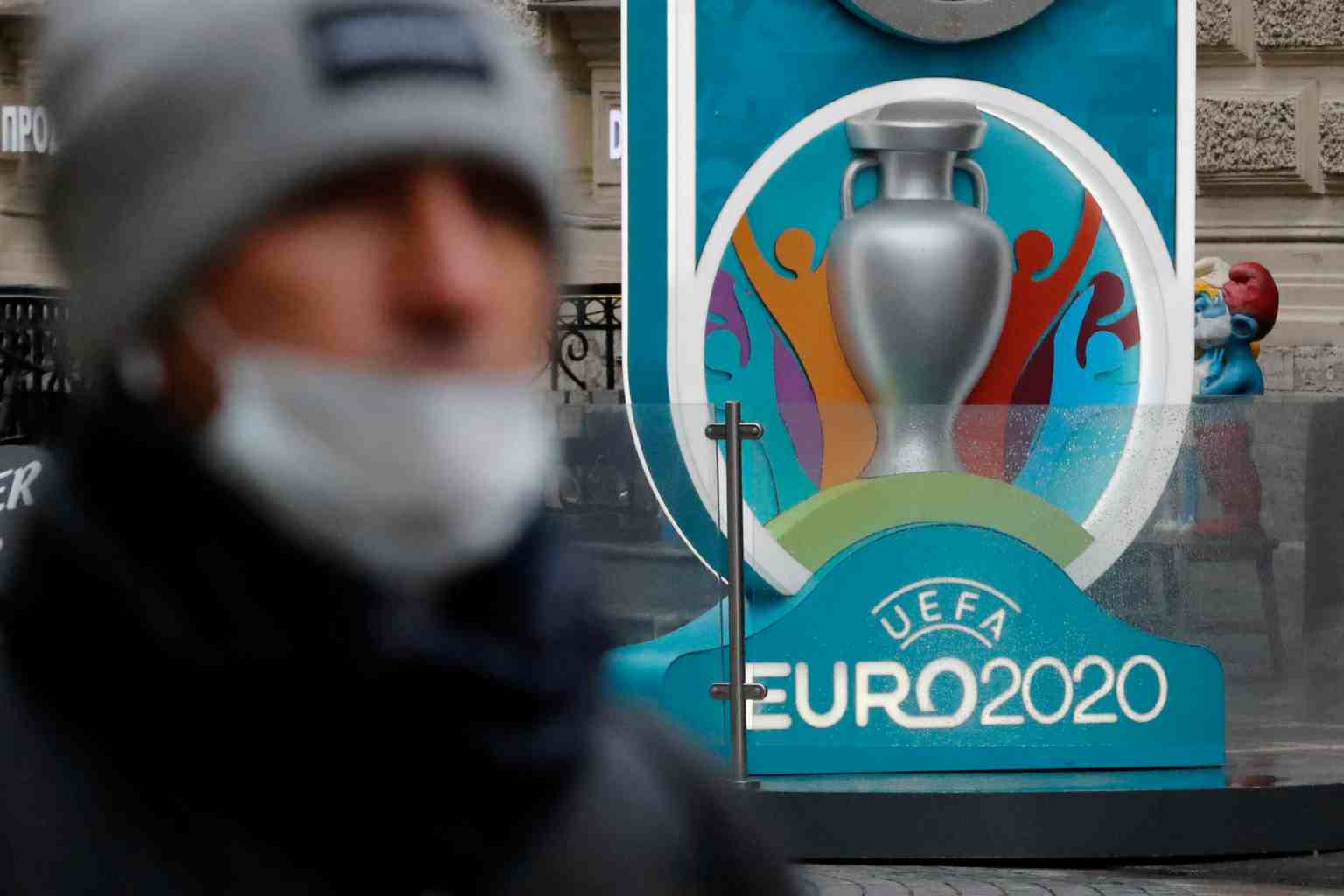Despite concerns that some cities would withdraw as hosts due to the pandemic, all 12 confirmed their readiness to continue as planned, with their Plan A and Plan B ready to be triggered once UEFA decides on the tournament format. But if the situation with the pandemic does not improve sufficiently for supporters to attend, finding a country capable -- and suitable -- to host a COVID-secure 24-team tournament is a challenge that UEFA has yet to solve.

Clock ticking for Euro 2020: How can the tournament survive the COVID-19 crisis?
There are just over 150 days until the start of the delayed Euro 2020. With Europe still battling to control the COVID-19 pandemic, the prospect of Italy meeting Turkey in the tournament’s curtain-raiser in Rome on June 11 seems so far beyond a distant horizon that it hardly seems credible to contemplate.
But despite the uncertainty and concern about the worsening situation in countries across Europe, with the infection rate growing sharply in many nations over the past month, UEFA is still attempting to navigate a safe path to a successful tournament. Sources tell ESPN that UEFA has three possible Euro 2020 scenarios and formats.
A final decision on how Euro 2020 will look is due in mid-March, with an acceptance within UEFA that waiting until its Congress on April 20 would be too late to enable re-organisation and the issue of ticket sales — if fans are even allowed — for a re-shaped tournament.
Ninety percent of tickets were sold prior to the pandemic and sources have said that only a “minimal” number have been returned for a refund, leaving UEFA with a problem when, rather than if, crowd limitations are imposed.
At this stage of the pandemic, and with five months until the tournament is due to begin, it’s all but certain that Euro 2020 will not be played in front of full stadiums in the 12 host cities across the continent. The best-case scenario is stadiums being no more than 70% full, with the back-up plan of grounds being used to just 30% capacity if the vaccine roll-out fails to ensure some kind of normality by the summer.
The third option, which sources say is regarded within UEFA as highly unlikely, is a tournament played behind closed doors in one country, with strictly enforced COVID-secure bubbles for every team. This scenario would call for a much larger version of last season’s eight-team Champions League and Europa League competitions, which were played to a conclusion in Portugal and Germany, respectively, last August.
Football in Europe is struggling right now to cope with the pressures of COVID-19. In England, 2021 has begun with widespread postponements at every level of the game due to a spike in positive tests. Meanwhile in Spain, Barcelona postponed training earlier this week due to two positive cases at the club.
Just last month, UEFA announced the cancellation of the 2021 Men’s and Women’s Under-17 Championships — due to be held in May, in Cyprus and the Faroe Islands, respectively — saying that “the current epidemiological situation in many parts of Europe makes it unrealistic to hold youth competitions in the first months of 2021.” But after taking the decision last March to postpone Euro 2020, sources say that a cancellation this year is simply not an option. It will go ahead, in some shape or form, because the financial damage of not doing so would prove ruinous to many of Europe’s 55 national associations and the UEFA initiatives and development programmes, all of which rely on the proceeds of major tournaments to operate.
Finding a safe and acceptable way to stage the tournament is UEFA’s big challenge.
Who is hosting? And how safe is it?
All host cities were required to submit a Plan A and Plan B to UEFA by mid-December, outlining their capabilities to stage games with up to 70% or 30% capacity, and stating whether they would be able to accommodate travelling supporters, and transport them, within any potential COVID restrictions in June and July.
Sources have said there are four potential options, but none are regarded as being without problems, from either a sporting or political sense. The country must also be able to provide training facilities and accommodation for 24 teams, which leaves UEFA with few realistic candidates.
With government support, the English Football Association is prepared to step in as a host if required. Wembley is already due to host seven games, including both semis and the final, while Hampden Park in Glasgow, which is pencilled in for three group games and a round-of-16 tie, could also be involved in a UK-wide bubble tournament. But with the UK having the highest infection and death rate in Europe, combined with the implications of Brexit, UEFA would find it difficult to sell England, with Scotland, as a host.
France, as the host of Euro 2016, and Germany, Euro 2024 host, are also under consideration due to the infrastructure and football stadiums in each country, but France is second only to the UK in terms of COVID-19 cases, and there has been little enthusiasm within the country to take on the task of hosting another Euros. Meanwhile, Germany is another tough sell with the country focusing on staging the 2024 finals.
Russia, hosts of the 2018 World Cup, is the fourth option, with a bubble limited to stadiums in St. Petersburg and Moscow. That bubble would contain five suitable venues, but with the country hit by a two-year worldwide sporting banlast month for doping violations, it would be politically insensitive for UEFA to turn to Russia as the fall-back hosts for their showpiece tournament.
Switching to one host nation is the worst-case scenario, though, and UEFA are bullish about being able to get Euro 2020 on, in as close to its original form as possible.
Time will tell, but time is also running out. Next Tuesday marks the 150-day countdown to the opening game. The clock really is ticking.
Original article 08.01.21 on the ESPN website.
To view the full article click here
© The Fan Experience Company 2020
